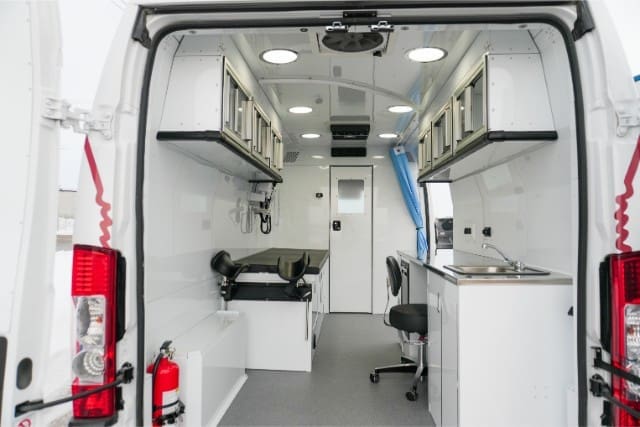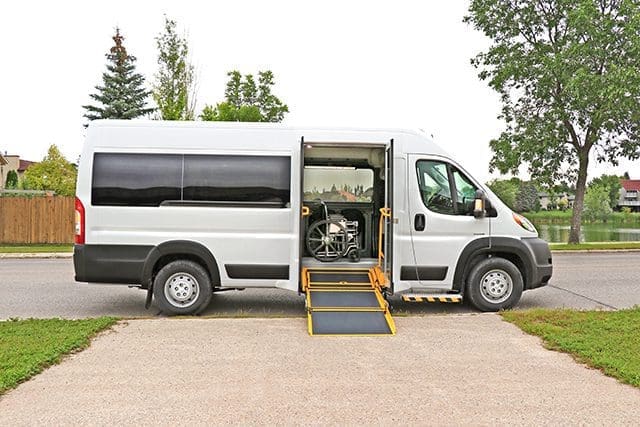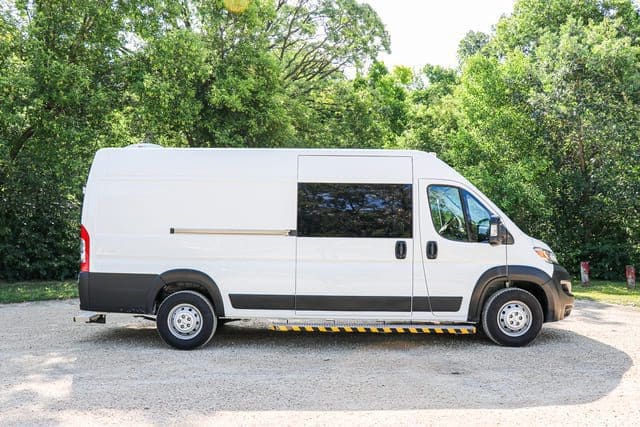Applying for grants for wheelchair vans can be a daunting task, especially if your organization is a non-profit. Grants could very well be the mainstream of funds to keep your program running.
For community programs that receive government funding, applying for wheelchair van grants may mean the difference between upgrading wheelchair vans and having to “make do” until more funds are available.
If you don’t get the funding you need, your program could suffer, so it’s super important to know how to write a great wheelchair van grant application.
Many of the organizations we work with at MoveMobility rely on grants or funding streams that require you to fill out an application.
And that’s why, in this article, you’re going to learn the six steps you can take to write a great wheelchair van grant application:
- Review the wheelchair van grant criteria
- Clearly state why your program needs the grant
- Make your program stand out
- Clearly state how your program will use the grant
- Focus on solutions, not problems
- Provide a budget
Read on to learn how to utilize each step in your application and to see a list of funding opportunities you should keep an eye on. If you prefer to learn about applying for grants for wheelchair vans in video format, watch the video below!
1. Review the wheelchair van grant criteria
To qualify for a grant, your organization may be required to meet certain criteria.
Some grants may be directed specifically for non-profits, while others may be for any programs that provide a specific service, such as accessible transportation.
Before writing a grant proposal, be sure that your organization is eligible to receive the grant based on its criteria.
Many grants have an application deadline, and when building your proposal, you may need to request information or quotations from wheelchair van providers to submit it with your application.
Make sure to set reminders for yourself so that you don’t forget to send in your application before it’s too late.
2. Clearly state why your program needs the grant
To increase the chance of being awarded a grant, your proposal should include convincing reasons why your program needs financial support.
We recommend explaining the impacts wheelchair van funding would have on your program and the people in your program.
For example, if your program does not have funds to replace your current wheelchair van, you may want to discuss the impacts that having no accessible transportation has on your clients.
In many cases, no access to transportation means that clients are excluded from outings, resulting in feelings of isolation.
3. Make your program stand out
In your proposal, state why your program is unique from other applicants.
This may include:
- Your geographic location
- The size of your program
- Your clients’ specific mobility needs
- The number of clients in your program
- Your specialized programming or equipment needs
- Other means of access to the vehicle or service you are applying for
4. Clearly state how your program will use the grant
Be specific.
Name specific projects, programs, or initiatives for which the funding will be used.
If the funding is intended to support adults with disabilities, give examples of how it will make an impact on their daily lives.
Or, if the grant is intended to improve rural community transit, provide scenarios that illustrate how having accessible transportation will improve the lives of your community’s residents.
If the grant funding is intended to solve a challenge with your transportation program (such as replacing an aged vehicle), show that you are passionate about improving your clients’ experience with it.
5. Focus on solutions, not problems
If you’re applying for grants for wheelchair vans, your organization may not have adequate funds to cover the cost of a van.
Maybe your vehicle broke down unexpectedly, leaving no budget for unplanned van placements.
This doesn’t have to give your grant proposal a negative tone. Instead, show how you will accomplish your program’s objectives using the grant.
Focus on your program’s solutions to instill positive emotions in the people reviewing your request.
6. Provide a budget
Provide specs in your grant proposal.
You should include the costs, ongoing maintenance, and any additional equipment you might need.
At this stage of the grant proposal, you may need to request quotations from vendors. Do not leave this step until the last minute. Talk to a MoveMobility expert now to get a quote you can use in your next proposal.
Or, click here to see how you can justify more funding for your program on your application.
Grants for wheelchair vans: opportunities to keep your eye on
Below is a list of different funding opportunities you can keep your eye on throughout the year.
Indigenous Services Canada
Indigenous Services Canada is a great resource for Indigenous communities to get funding.
They are consistently publishing new funding opportunities, some with deadlines and some without, so it’s a good idea to keep your eye on their website.
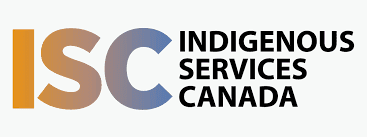
Jordan’s Principle Funding and First Nations Child & Family Services
Indigenous Services Canada is accepting Jordan’s Principle funding requests for buying or building capital assets. Requests supporting First Nations Child and Family Services and Jordan’s Principle are eligible.

Grant Connect
Grant Connect is an online tool for nonprofits to find funding opportunities. However, access to the website requires a subscription fee.

Grant Watch
Grant Watch, similar to Grant Connect, is an online tool you can use to search for grants in your market.
You have to pay to access the keyword search bar, but you can filter your search to your market and location for free.
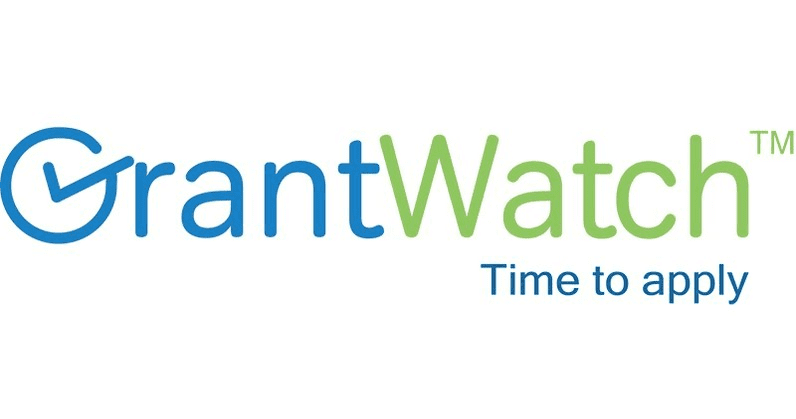
Getting grants for wheelchair vans: your next steps
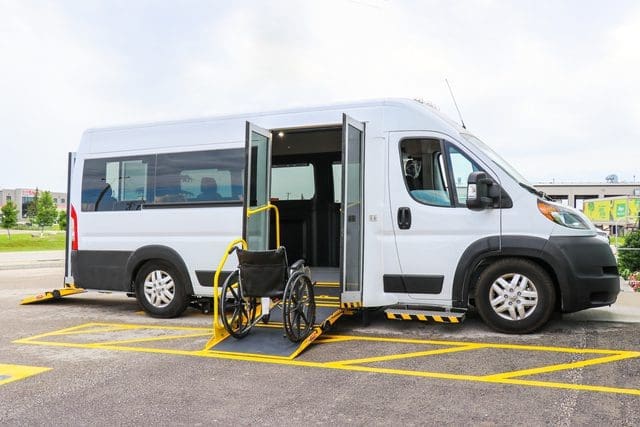
You came to this article to learn how to write a great wheelchair van grant application.
Now, you know the 6 easy steps you can take to ensure your application stands out from the rest, along with some funding opportunities to keep your eye on.
If you need a quotation for your application, reach out to MoveMobility now.
Or, continue on your research journey and check out these related articles:



